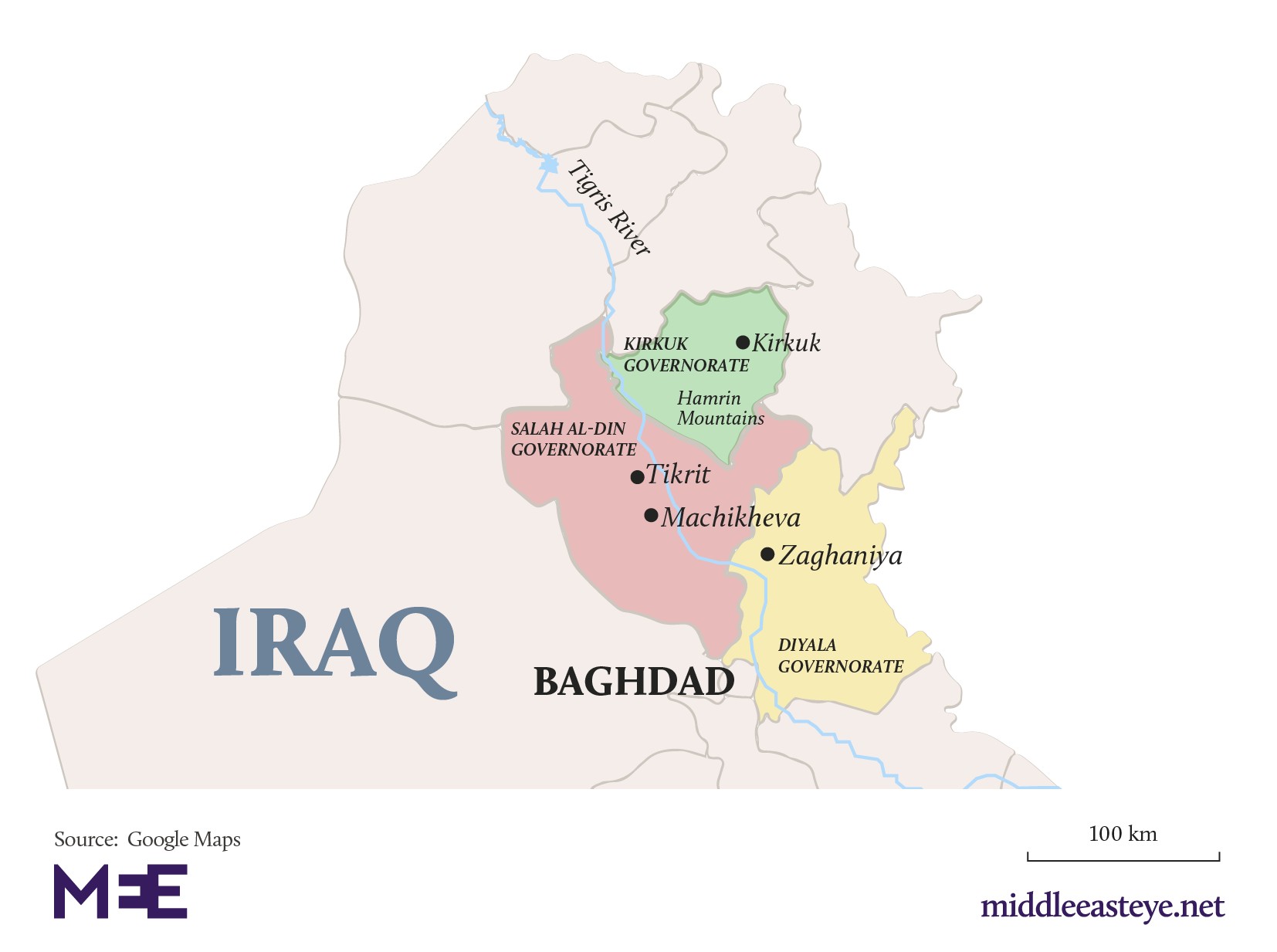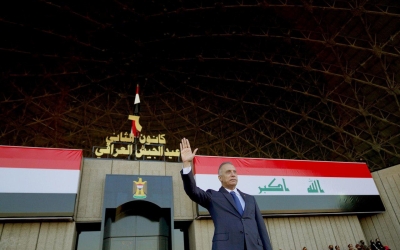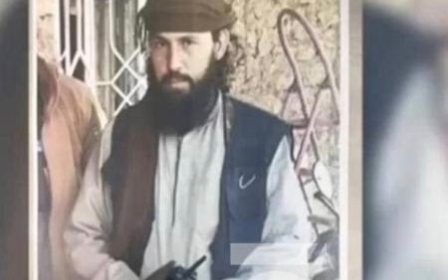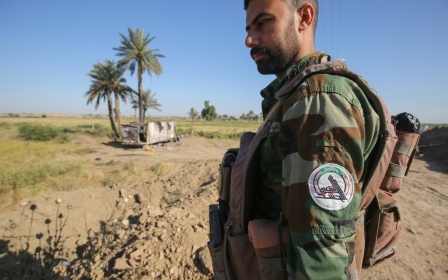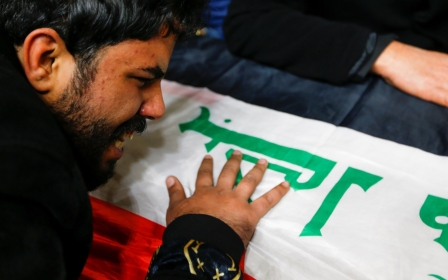Islamic State regrouping in northern Iraq and relying on women operatives
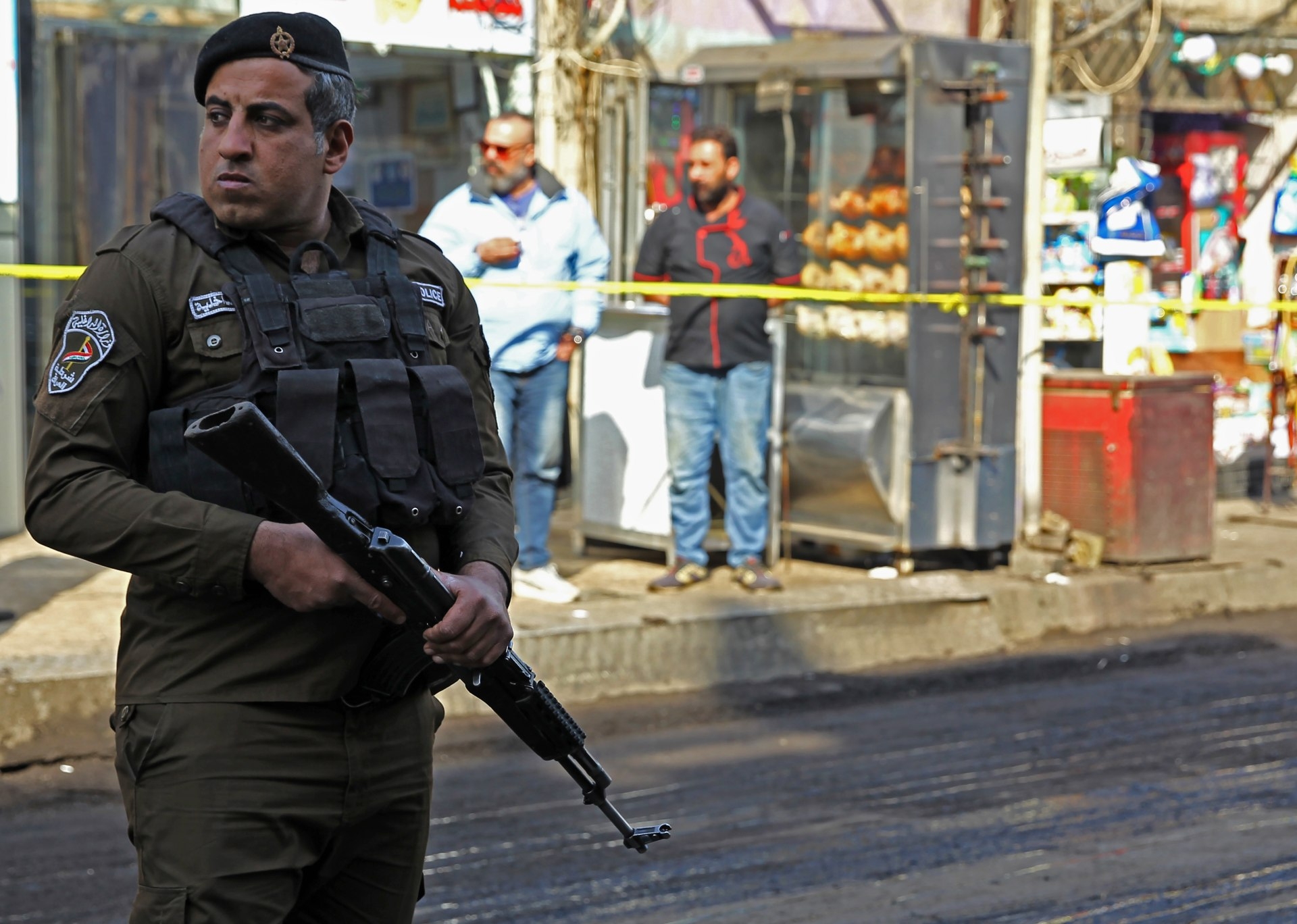
Islamic State group (IS) militants have been regrouping in northern Iraq and become heavily reliant on women to secure logistical support for their operatives in the Hamrin Basin, Iraqi military commanders told Middle East Eye.
Following the group's 2017 territorial defeat in Iraq, IS militants have largely been restricted to a triangle of territory between the governorates of Salah al-Din, Diyala and Kirkuk, including the Hamrin mountains.
The Hamrin Basin, as the area is known, is rugged and impenetrable. It is one of the largest and most dangerous havens in which radical Sunni and Kurdish armed groups have concentrated for decades, and where IS fighters fall back to whenever security becomes too tight in other areas.
The area is caught between the jurisdictions of the Iraqi federal security forces and those of the Kurdistan Regional Government (KRG), the Peshmerga.
New MEE newsletter: Jerusalem Dispatch
Sign up to get the latest insights and analysis on Israel-Palestine, alongside Turkey Unpacked and other MEE newsletters
A marked increase in IS activity north of Baghdad has been recorded by field military commanders over the past month. The militant group claimed responsibility for three major attacks in recent weeks, including a double suicide bombing in a Baghdad market that killed 32 people on 21 January.
Since that attack, 11 Hashd al-Shaabi paramilitary fighters were killed in al-Eith, east of Salah al-Din, and five others in Naft Khana, east of Diyala, commanders told MEE.
"We recorded a remarkable increase in the organisation’s activities in these areas during the last month, compared to the months preceding it. IS carried out three big operations and this is something that cannot be overlooked or ignored,” said a top military commander, speaking on condition of anonymity.
"They still pose a real threat, but their current attacks are aimed only at proving their existence, as the organisation is no longer able to hold territory.”
In return, international and Iraqi forces have stepped up efforts to target the militant group. Dozens of IS fighters have been arrested or killed in and around the Hamrin Basin over the past two weeks.
Abu Yasser al-Issawi, “deputy caliph” of IS, was among those killed last week in an air strike.
'IS still poses a real threat, but their current attacks are aimed only at proving their existence, as the organisation is no longer able to hold territory'
- Top military commander
Military commanders told MEE that Issawi and nine other IS leaders were killed in the Qouri al-Shay valley, south of Kirkuk.
The valley is “one of the most important” supply routes for IS in northern Iraq, linking the governorates of Kirkuk and Diyala and crossing the Hamrin mountain range, commanders said.
These mountains are around 25-30km long and 7-8km deep, and stretch between the governorates of Salah al-Din and Sulaymaniyah to the east and west, Kirkuk in the north, and Diyala to the south.
"These areas are very rugged, uninhabited and difficult to hold, and this is what IS detachments use to deliver supplies or transfer them between Kirkuk and Diyala," Brigadier General Rafi Saeed, who commands the 3rd Brigade of the Rapid Intervention Forces deployed in the area, told MEE.
“We have identified this vulnerability. We have carried out several operations in the area, but all operations last for a day or two and end. We have not been issued orders to hold this valley despite the availability of armaments and numbers pf Iraqi armed forces.”
Women operatives
The Islamic State group’s networks and abilities are a shadow of its former strength, when it held a third of Syria and Iraq.
But as IS seeks to grow stronger, it appears to be falling back on a tactic the militant group, and its precursor al-Qaeda, once heavily relied on: recruiting women.
The militant groups have long used women for suicide attacks and logistical operations. Women often pass security forces without being inspected, due to religious sensitivities.
The Iraqi military field commanders told MEE that IS has reactivated its dormant women cells. The Rapid Response Forces deployed in the Hamrin Basin arrested five women early this week, after a number of detainees confessed and revealed their whereabouts.
“Women were transporting money, messages and food to and from the organisation's hideouts and the families of its fighters,” Lieutenant Colonel Tariq al-Ghazali, a Rapid Response Forces commander, told MEE on Wednesday.
"We arrested the five women two days ago, in coordination with the counter-crime department in Sulaiman Bek town where the women live, and they confessed.”
The military commanders in the area supervising anti-IS efforts told MEE that the five detained women, and all others previously arrested, are relatives of IS fighters, and the group has not yet succeeded in recruiting new faces.
“These women are all housewives and IS relatives, and therefore it is easy to attract and recruit them,” Ghazali said.
“IS is heavily depending on women again due to the massive intelligence restrictions imposed on its members, the majority of which have had their identity revealed. The organisation is betting on the sensitive status of women in Iraqi society to pass whatever it wants.”
Kurdish tensions
Historically, most attacks IS has carried out were in desert areas around western Anbar and northern Nineveh, in addition to disputed areas between Baghdad-administered regions and the KRG.
Military commanders told MEE that most of these attacks usually coincide with the escalation of tensions between Baghdad and Erbil.
Those tensions have reached new heights. Baghdad is refusing to pay the salaries of public employees in Kurdistan, which number more than 700,000, until the KRG pays it the money raised through selling oil extracted in the region.
'This problem will not end until the dispute between Baghdad and Erbil ends once and for all'
- Top military commander
"For years, IS has been exploiting the tensions between the federal and regional governments to increase the rate of its operations, because most of its resources are located in areas considered to be lacking in security: places held by the federal forces on the one hand and the Peshmerga forces on the other,” a top military commander told MEE.
“The escalation of differences between the two sides always provides, intentionally or unintentionally, room for these groups to carry out their operations, and this is exactly what happened before 2014 during the rise of IS and its seizure of most cities and villages in the region,” he added.
"This problem will not end until the dispute between Baghdad and Erbil ends once and for all.”
This article is available in French on Middle East Eye French edition.
Middle East Eye delivers independent and unrivalled coverage and analysis of the Middle East, North Africa and beyond. To learn more about republishing this content and the associated fees, please fill out this form. More about MEE can be found here.


